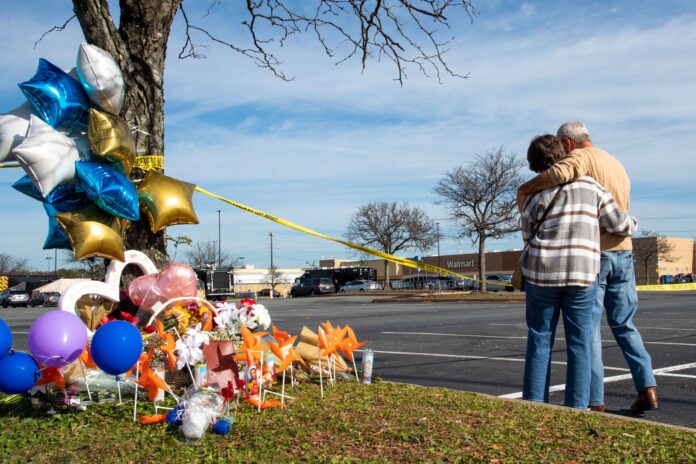
By Simon Li
In the wake of a series of mass shootings, America is grappling with gun violence yet again. A manager in a Virginia Walmart killed six employees, including a 16 year old that had just gotten his first paycheck. A 22-year-old gunman killed five at an LGBTQ club in Colorado on the eve of Transgender Day of Rememberance.
It is undeniable that we have a gun problem in America—in the past three years alone, America has had over 1800 mass shootings (shootings where at least 4 people are shot), with more than 600 shootings each year. Most Americans today will also agree that preventing those with mental health problems from purchasing firearms is a reasonable measure against gun violence. A Pew Research poll found a near majority of both democrats and republicans support banning mentally ill individuals from purchasing a gun (90% for democrats and 85% for republicans). Yet, at the heart of this assumption is the idea that the mentally ill are inherently dangerous and a threat to society. This typing of mental health only leads to a misconception of what mental health is and ignores the true reality of gun violence.
In America today, roughly 1 in 5 are diagnosed with some sort of mental health problem, totalling to around 40 million. Roughly 1 in 25 are diagnosed with a serious mental health problem, around 10 million. While those with serious mental illnesses are slightly more likely to commit acts of violence, it also suggests that the majority of those with serious mental illnesses do not commit violence (the only exception being suicide). If mental illness truly did cause violent crimes, we would see more than 600 mass shootings each year. To put it in context, if we assumed that all 600 mass shooters were severely mentally ill, out of the 10 million diagnosed, these shooters would only represent .006 percent of the total population. It should not be surprising, then, that most mass shooters do not have mental health problems.
Reality and perception, however, do not align. The public and media have relentlessly labeled mass shooters as mentally ill, as irrational, immoral, inhuman. I would say that only the last three are true. Yet, these terms are all synonymous because, after all, what reasonable, moral, sane person would commit such a deed? Instead of wrestling with that contradiction, we have chosen the easy route.
After all, what happens when mass shooters are labeled mentally ill? It reduces the problem, mass shootings, to an individualized problem. They killed people because there was something inherently wrong with them. This ignores, as an article in the Harvard Review of Psychiatry puts, the individual and social determinants that interact with each other to cause mass shootings. In other words, everything from socioeconomic inequalities to substance abuse to gun culture can play a role in the creation of a mass shooter. But by only fixating on mental health, we ignore these very real factors.
This has several implications. It devolves mass shootings from a community level problem down to an individualized problem, fixable by simply increasing funding for mental health programs. The burden is weaned off of the community and onto the individual, despite the fact that this is a societal problem. The U.S. has the same rate of mental health problems as the rest of the world, yet gun violence stands unparalleled with any other nation. Something is seriously wrong with our society, and instead of addressing it, we turn to scapegoats. This type of thinking also creates undue burden on healthcare facilities, especially mental health facilities. There will be a push to “cure” gun violence through these means—to be expected to be able to catch, with increased funding, any and all potential shooters. Those who are actually mentally ill will be more likely to be perceived as dangerous and to be avoided. Given the prevalence of suicide among those with mental health problems, alienating them from the rest of society would literally kill, and we would be at fault.
Mass shootings are a public health problem in America. As such, we must treat it as a public health problem, and address all the root causes. After all, a disease cannot spread without a fertile environment for it to grow and multiply—a lone virus or bacteria will die off if it cannot reproduce. The same thing occurs with mass shootings. To reduce it down to just one cause—mental health—and treat only that is a lot like curing obesity by imposing a sugar tax. After all, obesity is caused by poor decisions at the grocery aisle; surely there could not be external factors, such as food deserts that prevent the accessibility of healthy foods!
There can be more to be done in terms of curbing gun violence in America. But this cannot come at the expense of people with mental health problems. We cannot scapegoat our way out of this issue. Then, and only then, can we hope to see some change.
